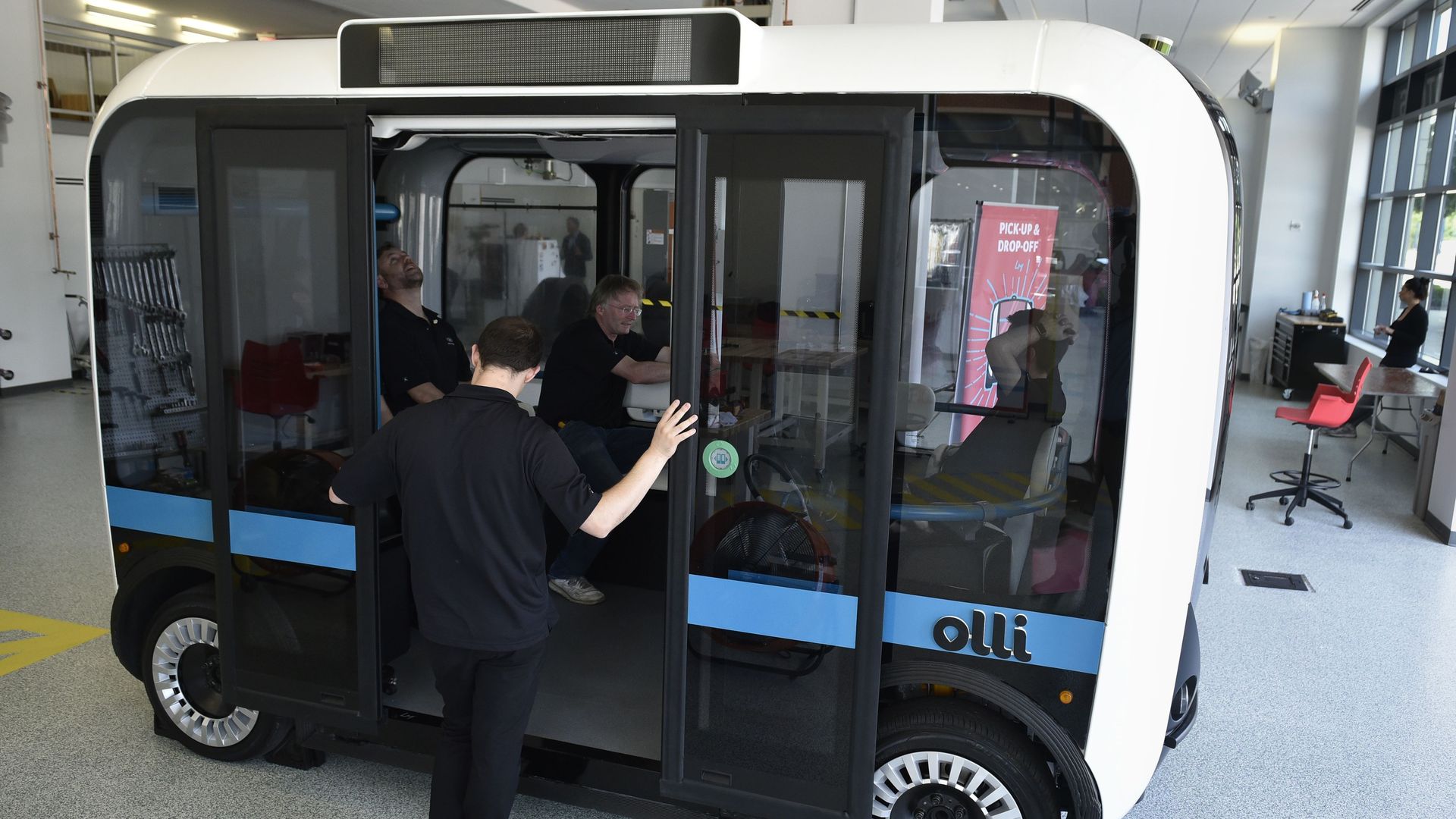Shared AV pilots are on the rise in U.S. cities
Add Axios as your preferred source to
see more of our stories on Google.

'Olli,' an autonomous shuttle, at the National Harbor in Maryland. Photo: Mandel Ngan/AFP/Getty Images
One AV trend set to pick up speed in 2019 is universities, cities and transit agencies piloting autonomous shuttles and circulators, typically carrying 10–12 passengers, to provide first- and last-mile links to other transit options.
Why it matters: These programs will be a chance to test AVs in new situations and environments, shape public perception of AV technology, and assess needed infrastructure improvements.
Background: In its October 2018 Automated Vehicles 3.0 Guidance, the U.S. Department of Transportation spelled out its high hopes for how AVs could improve public and private transport. DOT also announced up to $60 million in federal grant funding for projects that test the safe integration of automated driving systems onto the nation’s roadways.
Details: At least 8 U.S. cities will launch new pilot low-speed AV programs in 2019.
- Circulators: Austin is aiming to deploy shared AVs downtown as a free circulator shuttle this year. Las Vegas and its surrounding area received a $5.3 million DOT grant for an automated circulator program that will connect the Las Vegas Medical District with the city's downtown.
- Popular routes: Grand Rapids, Mich., will begin a 1-year trial in March of an AV shuttle service along a 3.2-mile section of the city's DASH West route. The Rhode Island DOT recently announced a 1-year AV pilot program offering free rides between downtown Providence and the Olneyville Square area.
- Bus service: In Ohio, Toledo and Columbus plan to run autonomous buses. Toledo won a $1.8 million DOT grant to begin service, and Columbus began a free downtown autonomous shuttle service in December, paid for by a $40 million DOT grant.
- Shuttles and transit connectors: A pilot program will launch on the campus of Texas Southern University in Houston early this year, and one has already launched as a connection to light rail in Dublin, Calif.
Yes, but: Some cities' past plans, as in the case of Knoxville's Olli trolley, haven't come together. And cities still need to work on accessibility around AVs, which is a major priority for manufacturers.
Paul Comfort is vice president of business development at Trapeze Group and the former CEO of the Maryland Transit Administration in Baltimore.
